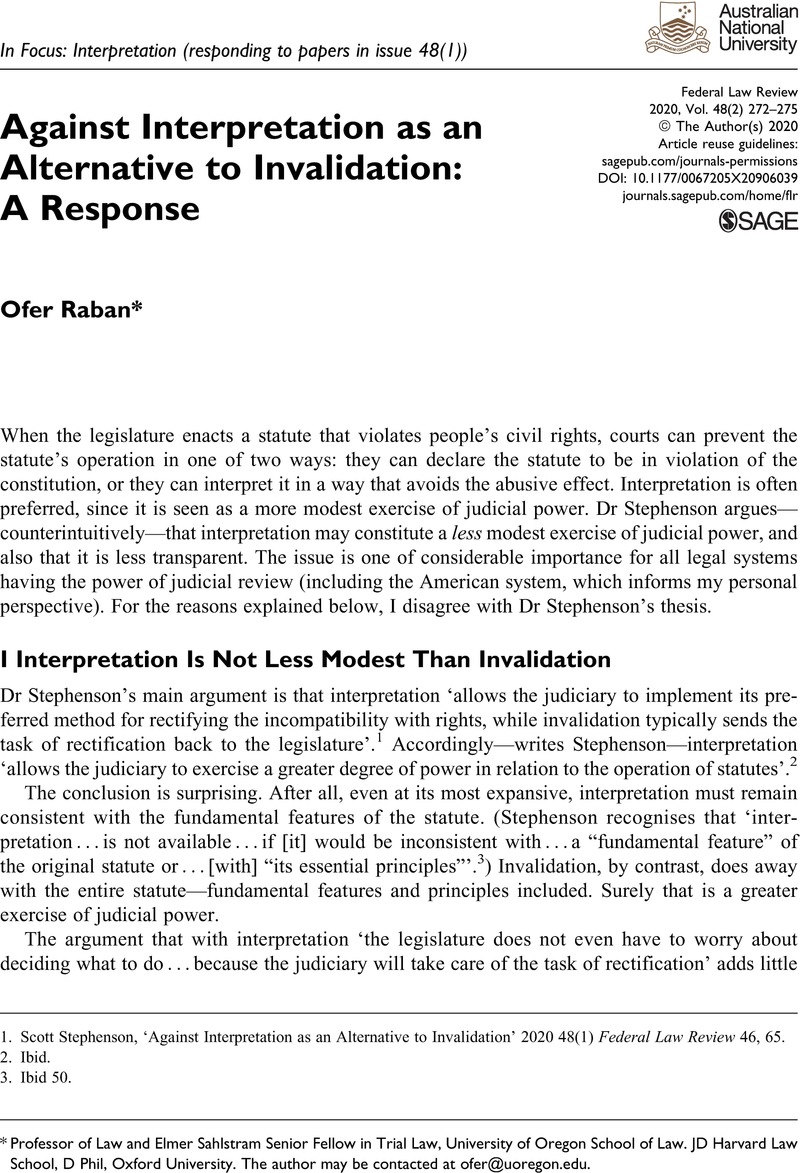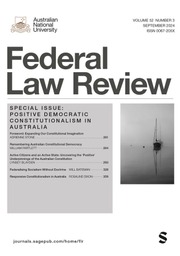No CrossRef data available.
Article contents
Against Interpretation as an Alternative to Invalidation: A Response
Published online by Cambridge University Press: 01 January 2025
Abstract

Information
- Type
- Articles
- Information
- Copyright
- Copyright © 2020 The Author(s)
References
1. Scott Stephenson, ‘Against Interpretation as an Alternative to Invalidation’ 2020 48(1) Federal Law Review 46, 65.
2. Ibid.
3. Ibid 50.
4. Ibid 50, 56.
5. Ibid 60.
6. Ibid 65.
7. Ibid 65–6.
8. Ibid 65.
9. Dr Stephenson also claims that invalidation is more transparent because ‘It is not possible for a court to invalidate a statute without first having determined that the statute violates a right’: Stephenson (n 1) 63. But rights-protective interpretations are also premised on such determinations, since they are deployed only where courts decide that, in their absent, a right would be ‘abrogated or curtailed’. See, eg, Plaintiff S157/2002 v Commonwealth (2003) 211 CLR 476.
10. See, eg, Compassion In Dying v State of Washington, 49 F 3d 586, 596 (9th Cir, 1995), on reh’g en banc, 79 F 3d 790 (9th Cir, 1996), amended (May 28, 1996), as amended (May 28, 1996), rev’d sub nom; Washington v Glucksberg, 521 US 702 (1997).
11. See Washington State Grange v Washington State Republican Party, 552 US 442, 1190–1 (2008) (explaining the preference for as-applied invalidations).

